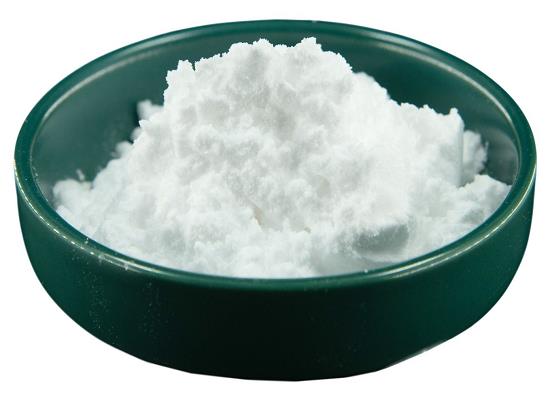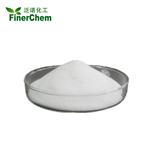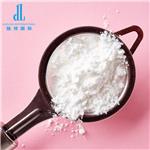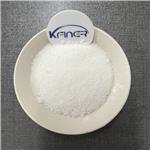β-Alanine: Physiological Roles and Kinetics of Ingestion
Jul 8,2024
General Description
β-Alanine, a critical component of carnosine, serves pivotal physiological functions in muscle performance enhancement and overall health. It acts as a pH buffer during exercise by binding to H+ ions, delaying fatigue onset, and improving muscle force production via Ca2+/H+ exchange. Furthermore, β-Alanine functions as a neuroprotector, antioxidant, and ion chelator, demonstrating its multifaceted role in maintaining muscle function and mitigating oxidative damage. Research suggests that training can boost muscle carnosine levels, with potential synergistic effects when combined with β-Alanine supplementation. Dietary sources rich in β-Alanine, like red meat and poultry, play a crucial role in carnosine synthesis, especially for vegetarians. Understanding the kinetics of β-Alanine ingestion, including its peak plasma concentrations and sustained-release formulations, is essential for optimizing its efficacy in increasing muscle carnosine levels. The interplay of training, diet, and supplementation highlights the complex yet essential role of β-Alanine in supporting muscle function and performance.

Figure 1. β-Alanine
Physiological Roles
β-Alanine, a key component of carnosine found abundantly in mammalian skeletal muscle, plays crucial physiological roles, particularly as a pH buffer during intense exercise. Its ability to bind to H+ ions helps maintain intracellular pH levels, delaying fatigue onset and prolonging exercise duration. Moreover, β-Alanine's role as a diffusible Ca2+/H+ exchanger enhances muscle force production. Beyond its muscle-buffering function, β-Alanine acts as a neuroprotector, antioxidant, ion-chelating agent, and antiglycating agent. It scavenges reactive oxygen species, prevents excessive ion accumulation, and inhibits the formation of damaging end-products. These multifaceted roles highlight the importance of β-Alanine in maintaining muscle function and overall health. 1
Effect of Training on Changes
Research into the impact of exercise on muscle carnosine levels is sparse. A notable study by Suzuki et al. (2004) stands out for investigating the effect of high-intensity training on muscle carnosine content. Their findings revealed a twofold increase after 8 weeks of sprint training totaling 14 minutes per session. This increase likely resulted from enhanced hepatic β-Alanine synthesis or increased β-Alanine transport into muscle cells. Contradictory results from studies like Kendrick et al. (2008, 2009) and Mannion et al. (1994) suggest differing effects with longer or more intense training. Bex et al. (2014) propose a potential synergistic effect between β-Alanine supplementation and training, emphasizing the need for further exploration.
Effect of Diet on Changes
Diet plays a crucial role in regulating muscle carnosine levels, with omnivores exhibiting higher concentrations compared to vegetarians. β-Alanine, a key precursor for carnosine synthesis, is primarily obtained from dietary sources like red meat, poultry, and fish. Vegetarians relying solely on uracil degradation in the liver for β-Alanine may struggle to maintain optimal muscle carnosine levels due to limited availability. Studies show that consuming chicken or turkey breast meat can elevate plasma β-Alanine levels comparable to supplements. While dietary intake influences carnosine content, the efficacy of solely relying on food sources remains debated. Supplementing with β-Alanine is likely a more reliable strategy for enhancing muscle carnosine levels.
Kinetics of Ingestion
The kinetics of β-Alanine ingestion play a crucial role in its availability and retention in the body. Studies indicate that consuming 10 mg/kg of β-Alanine leads to peak plasma concentrations in about 30 to 40 minutes post-ingestion. The reported half-life of β-Alanine is approximately 25 minutes, with it lingering in circulation for up to 3 hours. Opting for sustained-release formulations of β-Alanine can alter its release pattern, potentially enhancing retention and reducing excretion via urine. Research comparing sustained-release tablets to regular capsules showed a lower peak plasma concentration with the former but a delayed time to peak. Despite this, no significant differences were found in the overall plasma bioavailability, as indicated by the area under the concentration curves. Nevertheless, the enhanced retention of β-Alanine in sustained-release forms may boost the amount available for muscle carnosine synthesis. This suggests that optimizing the kinetics of β-Alanine ingestion, particularly through sustained-release formulations, could potentially enhance its effectiveness in increasing muscle carnosine levels. 2
Reference
1. Hoffman JR, Varanoske A, Stout JR. Effects of β-Alanine Supplementation on Carnosine Elevation and Physiological Performance. Adv Food Nutr Res. 2018; 84: 183-206.
2. Harris RC, Tallon MJ, Dunnett M, et al. The absorption of orally supplied beta-alanine and its effect on muscle carnosine synthesis in human vastus lateralis. Amino Acids. 2006; 30(3): 279-289.
- Related articles
- Related Qustion
Trenbolone cyclohexylmethylcarbonate, a potent steroid, requires precise dosing due to potential androgenic, estrogenic effects affecting skin, hair, and male sexual function.....
Jul 8,2024APICreatine monohydrate synthesizes from arginine and glycine, transported to muscle for ATP synthesis. Regulates metabolism and energy production efficiently.....
Jul 8,2024APIβ-Alanine
107-95-9You may like
- What is albendazole used for?
Jul 10, 2024
- X-PHOS: Properties and Applications as Catalyst
Jul 10, 2024
- Phenacetin: A Comprehensive Overview for Chemistry Professionals
Jul 10, 2024
- beta-Alanine
-

- $0.00 / 25KG
- 2024-07-10
- CAS:107-95-9
- Min. Order: 1KG
- Purity: 99%
- Supply Ability: 1000mt/year
- beta-Alanine
-

- $20.00 / 1kg
- 2024-07-01
- CAS:107-95-9
- Min. Order: 1kg
- Purity: 99%
- Supply Ability: 100 tons
- β-Alanine
-

- $0.00 / 1kg
- 2024-06-17
- CAS:107-95-9
- Min. Order: 1kg
- Purity: 0.99
- Supply Ability: 50000kg




